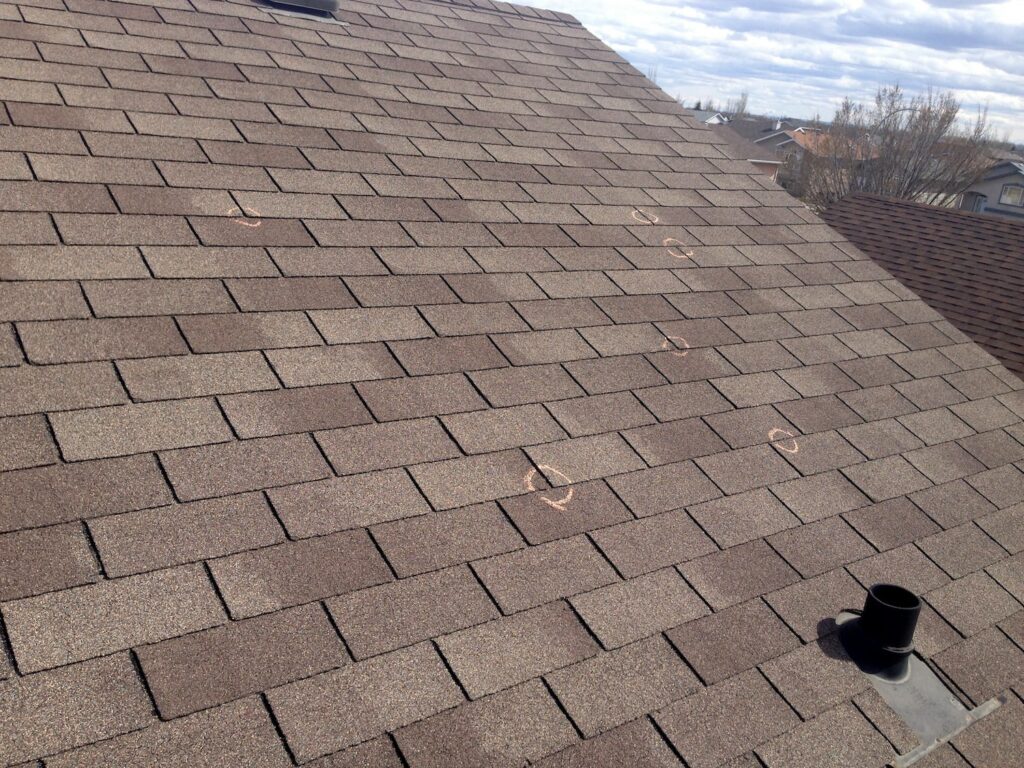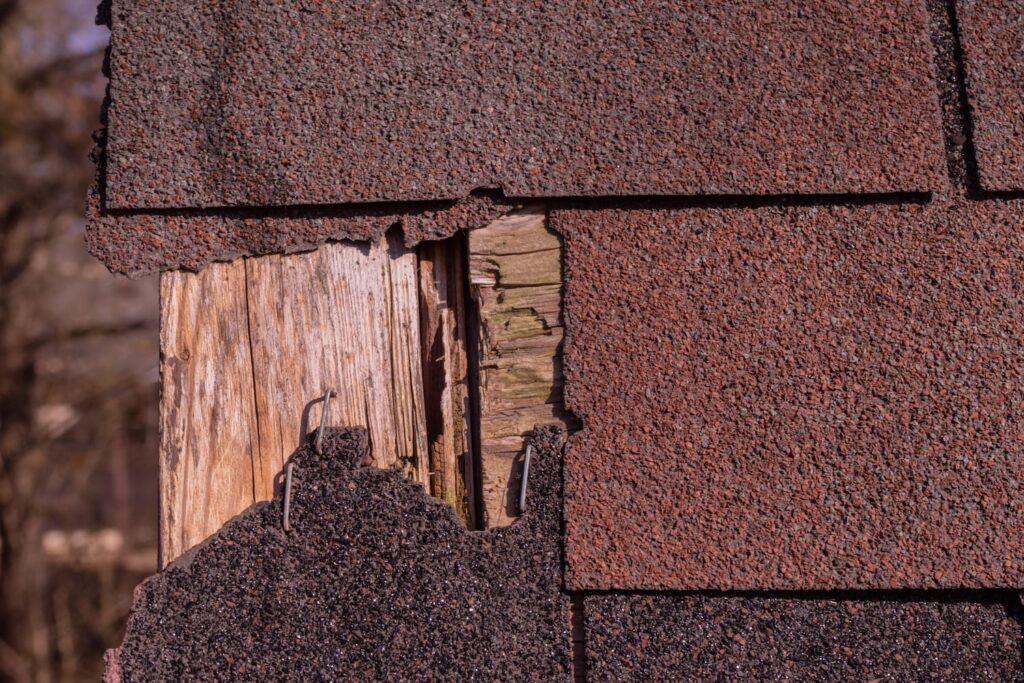No one ever plans on a natural disaster hitting their home, but homeowners need to be prepared when it does. Part of being prepared is knowing how long you have to file a homeowners insurance claim.
For the most part, homeowners can have up to a year after the incident to file their homeowner insurance claim.
But this can vary depending on your insurance policy, the insurance company, or the state you live in. Reading your policy thoroughly will be the only way to find out. But regardless of how long you have to file your claim, the longer you wait, the worse off you are.

What Does Homeowners Insurance Cover (or Not Cover)?
Homeowner’s insurance is not a one-size-fits-all concept. While there are some commonly covered items across the board, different states can include various damages depending on what sort of weather frequents the area. But for the most part, you can expect a standard homeowner’s insurance policy to include coverage under four main categories:
- Dwelling
- Personal property
- Other structures
- Liability
Dwelling
When damage occurs on any part of your home, it will fall under your dwelling coverage. This could be damage to the roof, windows, walls, or floors. All standard policies should include coverage for damages occurring from:
- Fire
- Wind
- Hail
- Theft or vandalism
Other conditional coverages that aren’t always included in a standard policy might include damage from roof leaks, termites or rodents, water, mold, or crumbling foundations. Again, depending on your state, policy, or whether you add-on coverage, these may not always be included automatically. Or, they may have circumstantial coverage.
Personal Property
Any of your belongings that are not affixed to the home would fall under personal property coverage, such as;
- Furniture
- Appliances
- Clothing
- Jewelry
Most policies have a cap on how much they will reimburse for any one item (say $500 for a television), so it’s essential to make sure you have an accurate inventory list when you move into your home and update it as necessary on your policy. You can also note personal belongings with their market value in your policy.
Other Structures
If you have a detached garage, storage shed, or gazebo on your property, it will be covered under this portion of your homeowner’s insurance policy. So if a fire, storm, or other disaster were to affect your separate structures, you can be assured they’ll also be covered under your homeowner’s insurance policy.
Liability Coverage
Liability is necessary if anyone gets hurt on your property or if you cause any damages to their property. It protects your assets if someone is injured due to negligence and decides to sue you for it. This can include:
- Medical payments
- Legal fees
- Bodily injury claims
Liability insurance can also cover any damages or injury caused by your pets and all people who are residents in your home. A good rule of thumb is to buy enough liability insurance to cover your assets. A.k.a, look at how much money you have in the bank. If you feel confident that amount will cover any liability lawsuits or claims, you should purchase more liability coverage.
What Does a Standard Policy NOT Cover?
Most homeowners’ insurance will not cover any damage from earthquakes, floods, wildfires, or hurricanes. Because these events are very dependent on location, homeowners that live in areas prone to such extreme weather need to add on that additional coverage on top of their policy.
Super valuable jewelry or art will also need additional coverage purchased because most standard policies will max out somewhere around $2,000. This can also apply to cars, appliances, and other valuable items in your home.
To be safe, a good rule of thumb is to buy enough insurance to cover the replacement of your entire home plus everything inside.

What Happens if You Wait to File a Homeowners Insurance Claim?
While you may technically have some time to file your homeowner’s insurance claim, you really shouldn’t. When your home or roof are damaged, time is of the essence. By putting off this critical step to repairing your home, you are setting the clock on a ticking time bomb.
Cracks in roofing shingles, your siding, loose bricks, or damaged flashing can all create the perfect environment for water, insects, or even rodents to get into your home, wreaking havoc on everything it touches. So what can happen if you wait to file? We’ll tell you.
- You’ll lose out on critical coverage due to negligence.
- Water leaks can cause widespread damage that will cost even more to repair.
- Rodents and insects can make themselves at home—in YOUR home.
- You will pay more in energy bills as your heat or air conditioning escapes through cracks or gaps in your home.
- You might be blamed for the damage when the time comes, especially if it’s months after a storm and the issue has spread.
- You may be left footing the bill in the end.
Now we know you don’t want any of those things to happen, so here are some tips for filing your insurance claim the right way (and on time).
Tips for Filing an Insurance Claim for Maximum Coverage
File your claim as soon as you spot any damage. Either the damage was apparent right after a storm, or you had an inspection, and they found damage. Most contractors can help you get your claim started because they know the ins and outs of such a task and can help ensure you get the coverage you need. To get the maximum coverage, you should also:
- Take pictures of the damage as soon as possible. This will help when filing your claim and getting reimbursed for damages.
- Make a list of all damaged or destroyed items. This is another crucial step in processing your claim and speeding up the reimbursement process.
- Keep a copy of your policy handy, as well as any receipts for recent repairs or renovations you’ve done.
- Be organized and have all your ducks in a row. This makes the entire process easier on you and those helping you with your claim.
Mistakes to Avoid When Filing Your Claim
Just as there are things to do right, there are also many things to avoid when filing your insurance claim.
- Don’t file late. Filing A.S.A.P. will be your best chance of getting your repairs done quickly and getting the most payout for repairs.
- Do NOT try to make your own repairs. Failed repairs can actually void any insurance coverage because it taints the existing damage and could even make it worse.
- Don’t lie or exaggerate about the damages. This will only make things worse in the long run, as it’s easy for insurance companies to catch you in a lie.
- Don’t miss any deadlines for filing the claim. This could also void your coverage, so make sure to submit everything by the deadline (if applicable), even if that means doing it sooner rather than later.
- Don’t get multiple inspections or quotes. Sometimes people will say you need three estimates before you begin, but this is false. If you get your insurance company to inspect your property and the contractor you want to work with, that should be plenty to come up with a thorough damage assessment and cost estimate.

Frequently Asked Questions About Filing Claims
This can all be very daunting. And homeowners, rightfully so, have dozens of questions going through their minds. And while your home is damaged, stress levels are high, and it can be tough to manage to file a claim on top of getting your home inspected and wondering how and when this will all be over.
Working through many insurance claims, we’ve heard just about every question in the book. So today, we’ll do our best to answer some of the most commonly asked questions regarding filing homeowners’ insurance claims.
Will my premium go up?
Yes, it’s likely your premium will go up if you file a claim. The reason being is that the more claims you file on your property, the higher the risk they deem your home to be. And if the insurance company is paying out on damage more frequently, then there’s always a chance of something else happening again in the future, and they don’t like that. If you file a claim concerning severe storm damage, theft, or liability, those can be red flags to the insurance company that it may happen again.
Can I file a claim if the damage was my fault?
In most cases, no. Claims are meant to help homeowners who have suffered damages that they did not cause. If it is found that you were negligent in some way and caused the damage yourself, then your insurance company has every right to deny your claim.
How long do I have to file?
This depends on your state and your insurance company. In general, most states have a statute of limitations for how long you have to file a claim after the damage occurs. For homeowners, it’s usually two years max, but you would have to check with your insurance company for the specifics.
Do I have to file a claim?
No, you do not have to file a claim for every little thing. If the cost of repairs is minimal and won’t stress your budget too much, it may be best to avoid filing a claim on more minor damages that can easily pay out of pocket. The reason being is that if you file a claim for something small now, it can affect how your insurance company views you in the future.
What if my claim is denied?
If your claim is denied by one company, then you can always shop around for another company to file with. Denied claims are not uncommon, and it doesn’t necessarily mean you did something wrong. There are many reasons why a claim may be denied, so if this happens to you, don’t get too discouraged.
Does insurance pay my contractor or me?
It depends on how your policy reads. Usually, the insurance company pays you directly, and then you pay your contractor in full once they’ve completed their work. However, some insurance companies prefer to pay the contractor directly because it seems safer for them that way.
What if my home isn’t liveable after damage?
Your insurance policy should have a section that offers coverage for hotels, food, and other living expenses should you need to move out of your house after severe damage. The insurance adjuster can determine if your home is liveable and safe upon inspection and then offer that benefit right away while the claim is filed and repairs are done.
Can I take a payout instead?
Some homeowners choose to take a payout from their insurance company to repair the damage themselves. This is an option, but it’s important to remember that if you do this, you’re on your own when it comes to fixing the damages.
The insurance company will not help you further and is not responsible for completing the repairs. Again, failed repairs, negligence, and intentional damage will not be covered should you decide to file a claim for further issues.
Final Steps of Filing an Insurance Claim
At this point, you should have your inspections complete, the insurance claim filed, and an estimate for how much repairs or replacement will be. All you need to do is find a reputable contractor to help get the job done.
Apple Roofing is a well-established roofing company helping homeowners repair or replace their roofs with ease. If you’ve experienced storm damage, we will do a thorough inspection, quickly estimate repairs costs (for FREE), and schedule a time shortly to implement those repairs.You can trust that we’ll take all of the stress off your plate and leave you with one thing—a solid roof. Our expert roofing work paired with 10-year warranties give you peace of mind, so contact us today!

